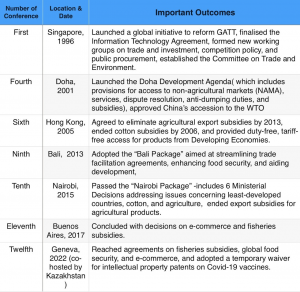ForumIAS announcing GS Foundation Program for UPSC CSE 2025-26 from 19 April. Click Here for more information.
ForumIAS Answer Writing Focus Group (AWFG) for Mains 2024 commencing from 24th June 2024. The Entrance Test for the program will be held on 28th April 2024 at 9 AM. To know more about the program visit: https://forumias.com/blog/awfg2024
Source: The post on Insolvency and Bankruptcy Code of India is based on the article “Keep Your Promise- SC does well backing personal guarantees in IBC cases” published in “The Times of India” on 11th November 2023.
Syllabus: GS2- polity- Government Policies and Interventions for Development in various sectors and Issues arising out of their Design and Implementation.
News: The article discusses how India’s Supreme Court upheld laws allowing creditors to claim personal guarantees from defaulting company owners, emphasizing the need to improve debt recovery systems.
What is the Insolvency and Bankruptcy Code (IBC)?
The Insolvency and Bankruptcy Code (IBC) is a legal framework in India, introduced in 2016 to address the rising issue of Non-Performing Assets (NPAs) and debt defaults.
Its key aims include a) Revamping India’s corporate distress resolution system. b) Consolidating laws for a time-bound resolution process. C) Shifting control from debtors to creditors.
For more information on IBC read here
What is the significance of Supreme Court rule on IBC?
Upholds IBC Provisions: The Supreme Court ruling supports the Insolvency and Bankruptcy Code’s inclusion of personal guarantors, allowing creditors to claim from company owners’ personal assets if their companies fail to repay debts.
Closes Loopholes: This decision plugs legal gaps, ensuring that company promoters can’t easily avoid their debt responsibilities.
Promotes Contract Sanctity: The ruling reinforces the importance of respecting contractual obligations in the business world.
What are the challenges faced by IBC?
The IBC faces challenges in speed and efficiency. The resolution process is slow, averaging 724 days between April and September 2023, far beyond the 330-day limit set by the IBC.
For more details on challenges faced by IBC read here
What should be done?
Speed Up Resolution Process: The current average resolution time is 724 days, significantly more than the IBC’s 330-day limit. This needs to be reduced to preserve company value.
Increase Recovery Rates: With only 5.2% recovery from personal guarantor cases, efforts must be intensified to improve this rate, making it closer to the 31.6% rate in corporate insolvency cases.
Timely Appointments to NCLT: The Government of India should focus on making timely appointments to the National Company Law Tribunal to handle cases more efficiently.
Question to practice
Discuss the implications of the Supreme Court’s decision to uphold certain provisions of the Insolvency and Bankruptcy Code (IBC) in India.






